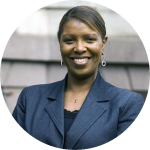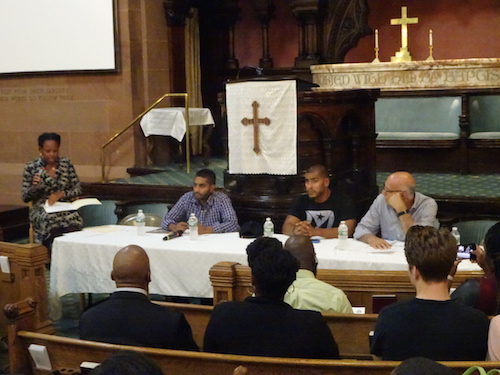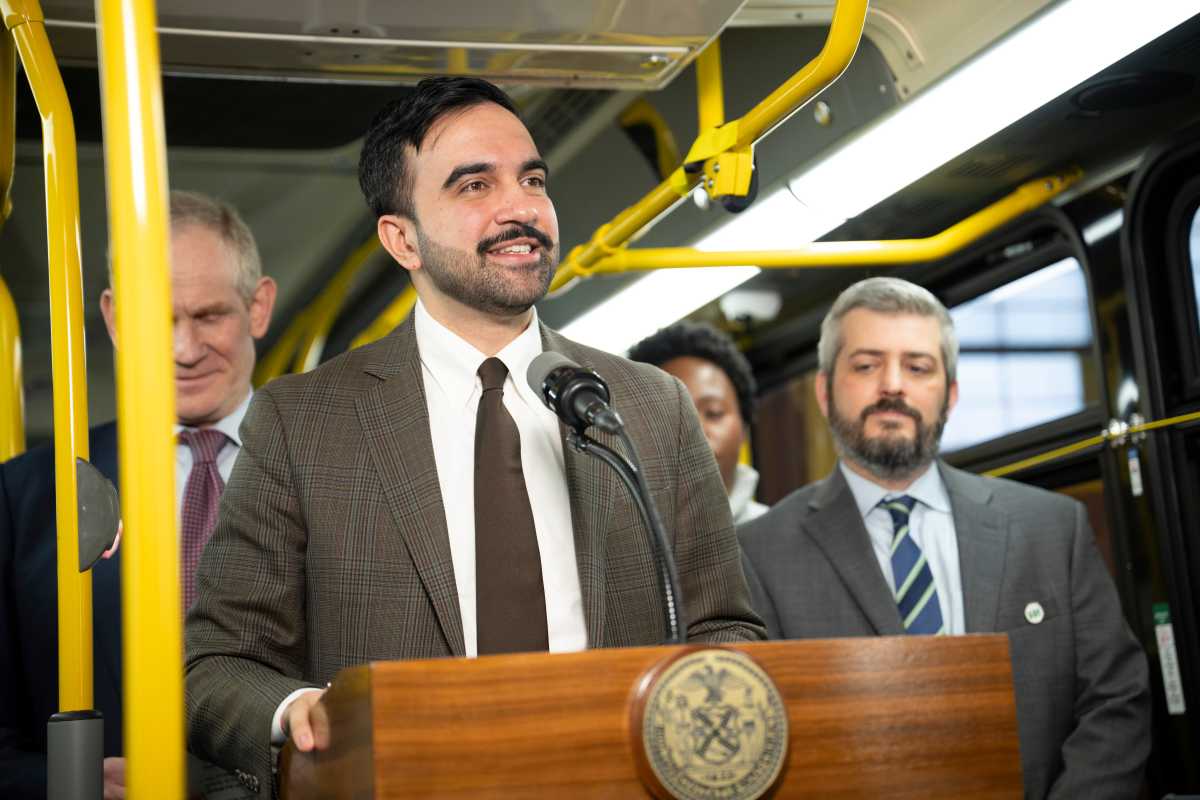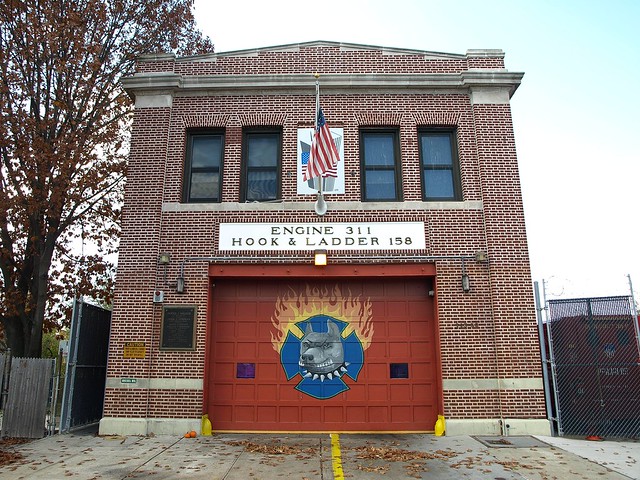Several high-profile activists convened at Clinton Hill’s Emmanuel Baptist Church, 279 Lafayette Avenue, last night to speak about New York City’s new initiative to outfit police officers with body cameras – a program that, in their opinion, is not an optimal solution to police brutality.
The Brooklyn branch of the NAACP called the town hall meeting to educate attendees about how the rollout of body cameras, which began earlier this year, will affect them personally, and to offer their personal opinions on the program’s effectiveness.
The rollout was the result of a series of class action lawsuits, first filed in 2013, and culminating with a judge’s ruling that provided for a program outfitting NYPD officers with body cameras. The rollout began in April this year, and the program has since been adopted by several precincts across Manhattan and Brooklyn.
The meeting including a 30-minute New York Times video about the results of the adoption of body camera programs across the United States. Afterwards, Alexzandria Poole of the NAACP moderated a Q&A Panel, which included Police Reform Organizing Project Co-founder Bob Gangi, activist Josmar Trujillo, NYPD Sergeant Rudy Hall, and Kumar Rao, Senior Staff Attorney for racial justice at the Center for Popular Democracy.
“The purpose of this program is to raise transparency, and hold officers responsible for their actions,” said Jamal Akbar, Criminal Justice Committee Chair of NAACP Brooklyn.
But according to the panelists, body cameras may not be the best solution – or even a solution – to achieve that end. The panelists spent the bulk of their time elaborating on the flaws in Brooklyn’s newly implemented body camera program, and suggesting more effective solutions for reducing police brutality.
Gangi argued that body cameras don’t necessarily provide incentive for officers to behave better, since they still don’t receive substantial punishments for misconduct caught on camera.
“We don’t think [body cameras] effectively, in any significant way, change practice on the ground,” said Gangi. “We’ve seen, here in New York City, some relatively recent films of police misconduct, the most famous being the killing of Eric Garner… and all of those offending officers still work for the NYPD.”
Gangi also used his time on the mic to suggest other, more effective ways to curb police brutality, such as ending “broken windows” policing and abolishing arrest quotas that incentivize unwarranted arrests.
Meanwhile, Trujillo argued that body cameras are a double-edged sword; if the officers’ actions are being constantly monitored, so are the civilians’.
“I think the police department, with all due respect… they have a longer view of it,” said Trujillo. “And I think their longer view of it is that they want to collect data from the public. And to have not just the police cameras that are already in our neighborhoods and public housing, but to also have cameras that enter your home… when we’re watching a police with a body camera, we’re being taken for a ride-along.”
Rao discussed a specific aspect of the pilot program that he took umbrage with – namely, the fact that civilians, as of now, are not entitled to view body camera footage.
“Right now, the public absolutely does not have access to that footage,” said Rao. “Even if you are the subject of that footage, you are not necessarily entitled to it.”
Hall conceded the potentially problematic aspects of the body camera program, but argued that no solution is perfect, and that there’s no way to eliminate police misconduct altogether.
“I apologize for every bad police officer you’ve ever met,” said Hall. “But if you take 5,000 doctors or lawyers or plumbers, there’s going to be some that aren’t good. That’s a fact of life.”
With this in mind, Hall told attendees that the best way to protect oneself as a civilian is to, in his words, “stay engaged.”
“Stay engaged before something happens,” said Hall. “When something goes bad, people come out, and they protest and they march. But you need to stay engaged. Know who the commanding officer of your precinct is. Find out what’s going on in your precinct. Stay engaged.”

Public Advoacte Letitia James, one of the staunchest supporters of implementing and expanding the body camera program, said while she still supports it, the program needs more transparancy.
“I’ve been proud to lead the fight to bring police body-worn cameras to New York City. While I’m grateful to the NYPD for releasing the most recent footage of a fatal incident, I’m concerned about the lack of an objective and transparent process,” said James in a statement.
“Body camera footage must be released through a standard protocol that is known to the public and the media, not by arbitrary decision-making. I once again urge the NYPD to establish a responsible process with an eye toward transparency, accountability, and privacy.”










